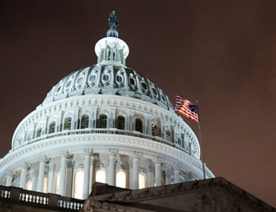
Two-thirds of adults say college athletes should be allowed to earn money from endorsements and sponsorships and half say athletes at colleges and universities with major athletic programs should receive a share of revenue received from broadcast rights, according to a new survey by The AP-NORC Center for Public Affairs Research. Fewer say major athletic programs should provide participating athletes with additional spending money (46%), a salary (38%), or exemptions from certain academic courses needed for graduation (19%).
These findings come at a critical time for the NCAA and the athletes it governs. In December of 2019, the formation of a bipartisan congressional working group on compensating collegiate athletes was announced.1 This comes after the state of California passed a law in October that will allow college athletes to earn money from endorsements, and other states are expected to follow suit.
The NCAA isn’t a well-known entity among the public; 47% of Americans say that they don’t know enough about the NCAA to have an opinion about the organization, while 14% of the public has a favorable view and 17% has an unfavorable view.
Attitudes toward college athlete compensation are closely tied to race and ethnicity. While endorsement deals for college athletes are quite popular among the general public, 8 in 10 black and Hispanic adults say they should be allowed compared with 6 in 10 white adults. There are also significant differences between white and non-white adults when it comes to colleges and universities with major athletic programs providing different forms of compensation. Fewer than half of whites say athletes in these programs should receive a share of broadcast revenue, additional spending money, or a salary, while more than half of blacks and Hispanics say the same. Black and Hispanic adults are more than twice as likely as white adults to say athletes should be given exemptions from certain academic courses.

Level of education is also tied to some views on athlete compensation. Those with a high school diploma or less are more likely than those with at least some college to say athletes at colleges and universities with major athletic programs should be provided with a salary and exemptions from certain academic requirements.
The nationwide poll was conducted from December 5 to December 9, 2019, using the AmeriSpeak® Panel, the probability-based panel of NORC at the University of Chicago. Online and telephone interviews using landlines and cell phones were conducted with 1,053 adults. The margin of sampling error is plus or minus 4.0 percentage points.



